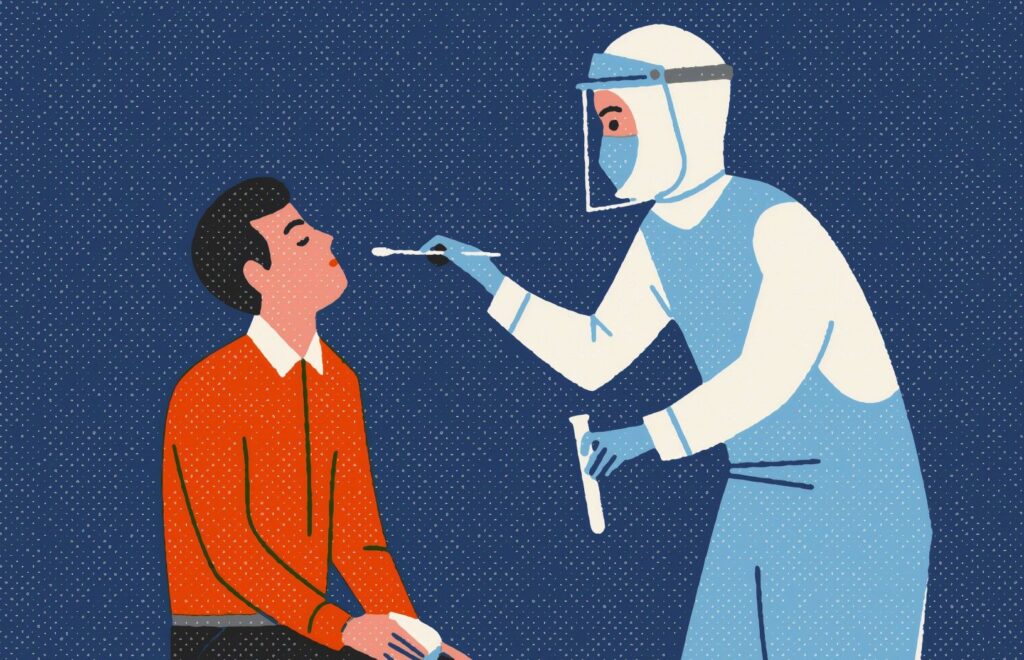When the Covid-19 pandemic struck, the NHS was unprepared due to its “heavily privatised, convoluted, and fundamentally dysfunctional system” of product supply, in particular of personal protective equipment (PPE), according to a report published by the Public Services International Research Unit at the University of Greenwich and the campaign group We Own it.
The government’s privatisation of the supply chain, notes the report, led to the disastrous failings in getting adequate PPE to where it was needed as the number of coronavirus cases rose. This ultimately may have led to the deaths of NHS workers. There has been an outcry in the press over the lack of PPE, however the report notes that little has been said about the role of privatisation on the shortages.
The production and supply of goods to the NHS, including all PPE equipment, is very complex and for the most part in the hands of private companies. This is a result of several years of privatisation of the NHS’ procurement and logistics system under the guise of efficiency savings.
In 2018, NHS Supply Chain was created and then in April 2019 Supply Chain Coordination Limited (SCCL), was created by the Health Secretary, Matt Hancock, supposedly designed to be a company to take on “the in-house management function of the NHS Supply Chain”. Both NHS Supply Chain and SCCL are ostensibly still part of the NHS, but what followed their creation was the awarding of a complex web of contracts and sub-contracts to private companies. Companies include DHL, the parcel delivery company, and Unipart.
The complexity of the set-up – the report notes that “every piece of equipment passes through four levels of profit-taking before it arrives at the hospital” – has taken control further and further away from government. This lack of central control and removal of civil servants from the process, the researchers argue, has weakened governance and made it very difficult to manage unexpected events, such as an epidemic. As a result, the national effort to protect NHS and care workers has been “severely undermined.”
When the pandemic started and the need for more PPE became evident, companies and organisations across the country were offering help, yet many found “no one in government willing to take their call”, note the researchers.
The UK has known for sometime how important it is to stockpile for the possibility of an epidemic and to create secure supply chains, however the privatisation that has taken place has severely undermined this fundamental approach to preparedness for unexpected events, notes the report. Instead, privatisation of the supply chain has generated “perverse incentives that encouraged a rationing of the demand for PPE, rather than a boosting of supply”. As a result, as the pandemic escalated, NHS trusts had to find ways to source PPE themselves as the stockpile and secure supply chains were just not there.
Privatisation, the report notes, is also the reason why this measure – desperate NHS trusts forced into sourcing their own PPE – has been stopped. On 3 May 2020 the government told trusts to stop buying their own PPE equipment and said that SCCL should take over the management of any new deals being negotiated between trusts and suppliers. The report suggests that the reason for this is SCCL protecting the private companies that it deals with:
“They [SCCL] are protecting their own contracts with other private companies, and literally managing demand to fit the supply, rather than responding to demands from the NHS for resources.”
The report argues that the privatisation of the supply chain has also led to the ethos of ‘just-in-time’ production being introduced into the NHS. This system, probably best-known from the manufacture of cars, results in very little inventory being stored and acts to minimise waste. Unfortunately for NHS health workers around the country, use of such a system within the NHS, means that the supply system cannot respond to unexpected events. This, the report notes, is the opposite of what is needed in NHS supply chains. What is needed for public health systems is “sufficient give and flexibility in the system” otherwise there are insufficient key supplies available for unforeseen exceptional emergencies – “a nightmare of inadequate stocks just when they are most needed.”
If the pandemic had not happened, the privatisation of the supply chain and its effect on the NHS, would not have been brought to the public’s attention, notes the report. Now it has surfaced, however, there is a need to take action urgently. What is needed is an NHS Supply Chain that puts “people before profit, which takes responsibility instead of abdicating it, and which prioritises long-term planning and community safety.” In effect “a simpler system under direct NHS control, with clear lines of accountability and a culture of prioritising safety, long term planning and smart use of skills and resources within the NHS and in local communities and the local manufacturing sector.” The authors of the report also call for a public inquiry into the government’s handling of the PPE crisis.
Dear Reader,
If you like our content please support our campaigning journalism to protect health care for all.
Our goal is to inform people, hold our politicians to account and help to build change through evidence based ideas.
Everyone should have access to comprehensive healthcare, but our NHS needs support. You can help us to continue to counter bad policy, battle neglect of the NHS and correct dangerous mis-infomation.
Supporters of the NHS are crucial in sustaining our health service and with your help we will be able to engage more people in securing its future.
Please donate to help support our campaigning NHS research and journalism.


